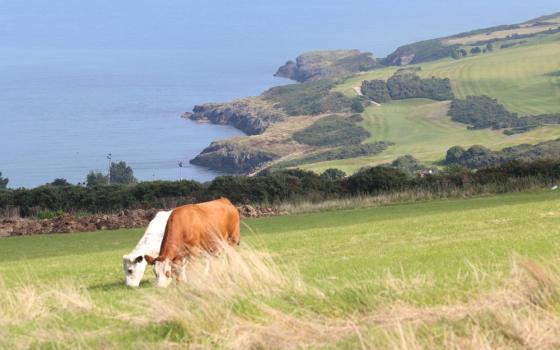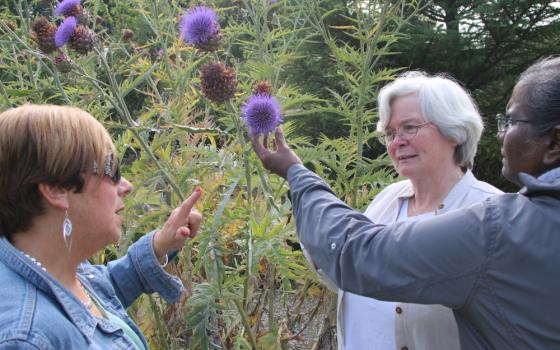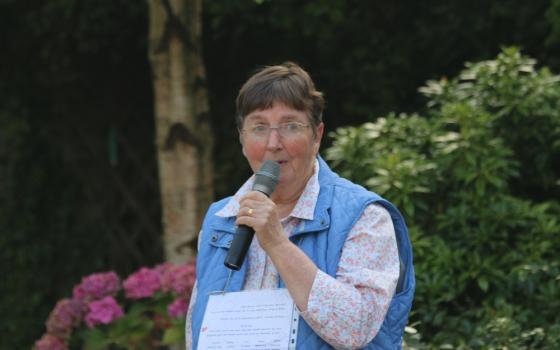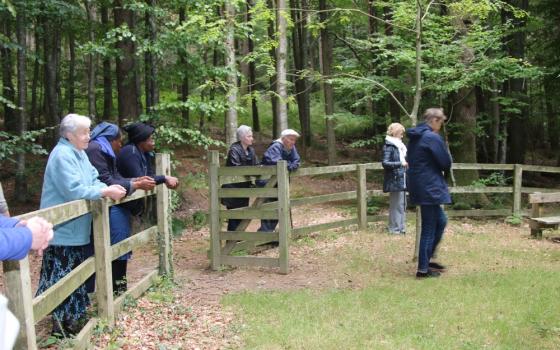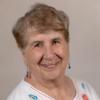Long before the publication of Laudato Sí and Pope Francis' call for an "ecological conversion" (217), Catholic women's communities had already recognized that their "communities have an important role to play in ecological education" (214) and have "strived to promote a new way of thinking about human beings, life, society, and our relationship with nature." (215)
These initiatives have taken many and diverse forms, including establishing environmental centers. I am currently participating in a sabbatical program at one: An Tairseach (an Irish word meaning threshold), a Dominican Ecology Centre, in Wicklow, Ireland. The mission of An Tairseach is "to grow in awareness that the Earth is our home and home to all living beings."
The 1986 Chapter of the Dominican Sisters of Cabra, the founders of An Tairseach, called for a growing awareness of the need for environmental action. Sisters began reading the works of Thomas Berry and Brian Swimme and opening themselves to the evolving universe story. The 1992 Chapter called for continuing education, study and personal growth in environmental awareness, but also cited the need to do something practical.
Cabra Dominican Srs. Marian O'Sullivan and Julie Newman invited Dominican Sr. Miriam Therese MacGillis, who founded Genesis Farm in New Jersey in 1980 as "a learning center where people of good will are welcome to search for more authentic ways to live in harmony with the natural world and each other," to visit them in Ireland. She stayed for three months to assist them in creating a similar center on property the congregation owned. A committee was formed and multiple meetings were held with the Dominican community as well as local people to determine the most effective way of filling the void of environmental education. Following her visit Sisters Marian and Julie spent time at Genesis Farm.
The Dominicans had 70 acres of land in located on a hillside overlooking the Irish Sea which had been rented out to farmers for many years. In 1998 they decided to reclaim the land and use it for an organic farm. This required several years of intensive labor under the direction of a newly hired farm manager in order to restore the fertility of the soil and become certified as organic. Today, the community's goal of providing a model of sustainability is realized by a farm which produces an abundance of organic vegetables as well as organic beef and pork from its livestock.
Products from the farm, as well as fair trade products, are available to the surrounding civic community through the on-site organic store. The farm also hosts tree plantations (10,000 trees have been planted so far), wildflower meadows and pond and stream walks, and it provides the setting for educational visits for adults and children. Although a farm does not make a large profit and requires a tremendous amount of work, the sisters are committed to it simply because their community believes that by farming without chemicals they are choosing to make a contribution to protecting human health and to restoring the diversity, integrity and beauty of the ecosystem.
In 2005 the sisters decided to renovate a building on their grounds and opened the Dominican Ecology Center, which offers a variety of programs from single lectures to 10-week sabbaticals. All of the programs are based on the new cosmology which seeks to view God through the lens of an evolving universe and a deepening understanding of a renewed relationship with the whole community of life, human and non-human. The ecology center is set in the context of the fully functioning organic farm.
As I immerse myself in the sabbatical program, my awareness of the need for my own personal ecological conversion grows. Pope Francis' reminder is coming alive for me: "The entire material universe speaks of God's love, his boundless affection for us. Soil, water, mountains; everything is, as it were a caress of God." (Laudato Sí 84)
Thomas Berry wrote a number of years ago that, "The cosmological narrative is the primary narrative of any people for this is the story that gives to a people their sense of the universe." The difficulty he saw in our world today was that, "We are in trouble because we do not have a good story. We are in between stories. The Old Story — the account of how the world came to be and how we fit into it — is not functioning properly, and we have not learned the New Story." Here at the center we are beginning to explore and articulate a new story; one that integrates our new understanding of how the universe is evolving with our faith tradition.
Josephine Newman, Ph.D., a teacher and psychotherapist, challenged us to move towards the new story, towards a new paradigm in our relationship with Earth and the recognition of our interdependence with all of creation. "To do this," she said, "we need to reclaim our capacity for participative knowing and the practice of presence to self, as well as advance our scientific knowledge."
By walking us through the cosmologies of previous eras of civilization, Christian Br. Mark McDonnell showed us how cosmology is always embedded in a culture and reflects the values, beliefs and assumptions of that culture. He called us to grapple with the cosmology needed today, using the work of Thomas Berry:
The Universe story needs to be accepted simultaneously as the human story and the story of every being in the Universe. There is need for the religious traditions, on their part, to appreciate that the primary sacred community is the universe itself, and that every other community becomes sacred by participation in this community. The story of the universe is the new sacred story.
It is this new sacred story that is continually unfolding for me with each new class and experience.
From the macro to the micro, on the beaches studying rock formations to looking at the tiniest wildflower under a microscope, John Feehan, biologist, geologist and author, helped us see how new discoveries in science reveal ever more clearly the ongoing work of God in the world. He challenged us to a transformation of consciousness: from seeing humans as just below God and the angels in the great chain of being to recognizing that each of us is a part of the tree of life. "We humans are one twig in a forest of related branches," John summed up.
Now as I walk in the garden, along the beach, down the street or through a forest, I am much more conscious of the incredible complexity of each living organism. There are no two apples alike on the tree or two clovers that look exactly the same. I think, so often, I have simply walked from one place to another in such a hurry to get from point A to point B that I missed God's unfolding presence right before me.
Assimilating new knowledge with preconceived ideas and moving from the head to the heart is an ongoing process. We gather each morning in the cosmic garden to listen and reflect on the wonders of nature surrounding us in order to facilitate this integration. Sr. Pauline McGrath leads a daily ritual, as well as offering art and dance classes. "Ask not what the world needs but what makes you come alive and go for it," she challenges us. Her own passion for art and life inspires me to explore new ways of expressing this growing awareness of the interconnectedness of all things through art, dance and poetry. Daily I sit with the question of what makes me come alive and how I can make my own passions an integral part of my life and ministry.
I do not know yet all that an ecological conversion is going to mean for me. I only know that I want to be open to the Divine Mystery continually calling me forth to new ways of being and new ways of relating to all of Creation.
I am only scratching the surface of all that I have received in the past few weeks. I am continually amazed and energized, not only by the content of the program, but by sharing with the 14 other participants from Sri Lanka, Papua New Guinea, Australia, Nigeria, Ireland and New Zealand. Each has a story to share and each enriches my life.
I am understanding at a whole different level what Thomas Berry meant when he said:
The natural world itself is our primary language as it is our primary scripture, our primary awakening to the mysteries of existence. We might well put all our written scriptures on the shelf for twenty years until we learn what we are being told by unmediated experience of the world about us.
[Caroljean Willie is a Sister of Charity of Cincinnati who has a Ph.D. in Multicultural Education. She has extensive experience working cross-culturally throughout the United States, the Caribbean and Latin America.]
